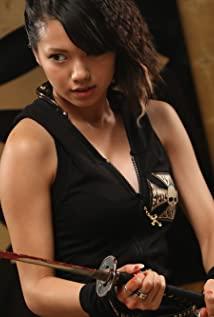As the title suggests, "Evil" is intended to be presented in "The Evil". The scholar Gan Shangping once said: "In modern horror films, it seems that no expectations are given to the audience. Horror films are becoming more and more pessimistic. It seems more certain that the dark side of our nature will inevitably surpass the bright side. Humans must face it. The most terrifying fact-the evil that exists in our hearts cannot be eliminated or controlled." In other words, human nature is no longer such an absolute dichotomy of good or evil, because in any case, there is a certain amount in everyone’s heart. Part of the evil. This evil is amplified and manifested by the protagonist Hasumi Seiji (played by Hideaki Ito); on the other hand, he also completely destroys all values and systems that allow society to maintain a harmonious and stable operation, forcing people to look directly at what is hidden underneath. Bloody.
The first thing Lian Mi started with was the family. The beginning of the film shows the process of a broken family: the father pointed at the child's problem, while the mother just cried and refused to accept the facts. Then the audience saw a naked child walking upstairs with a knife. In just a few minutes, the director pointedly pointed out the parents’ reactions to the child’s behavioral deviations, especially the mother. She was unwilling to believe that the child was only 14 years old and blamed herself for the problem. The wrong way of education is showing that she wants to restore the family that is gradually depressed, trying to maintain a complete family portrait; unfortunately, this is just in vain. The appearance of the 14-year-old Hasumi completely shattered our imagination of a perfect family-a happy family composed of a loving couple and lovely children. Since then, no family has appeared in the film; Even if there is, it is not a perfect family (the Qingtian family only has a father and a daughter, and the two never appeared at the same time), and in the end it was completely destroyed by Lian Mi.
Hasumi killed relatives and destroyed the family. From another point of view, it is incest, which is to challenge the norms of ethics and ethics; then, he turned his goal to school, because it also represents a certain kind of rules and is a system of knowledge and value. place. Therefore, he chose to carry out a massacre at the school, letting blood spew out and stain the buildings in the school, making it a chaotic, dirty, and terrifying purgatory. From this point of view, Hasumi’s previous actions are really full of sarcasm, such as: He adopts love education to replace severe punishment with encouragement and care, and maintains good interaction with students; when faced with angry parents, he will not Relying on one-sided words to deal with the problem, but also trying to maintain the peace of the school, parents and students. In short, what he did was to create an example of a perfect teacher and to satisfy our imagination of school education. However, he easily destroyed it with his own hands, as if it was just an illusion of fragility, and we can only scream in horror like the group of students who were shocked by the shattered hope, completely powerless to resist and escape. As for Hasumi’s relationship with female student Miya Yasahara (played by Mizuno Eirina) on the one hand, he also condemned the teacher-student love between Kume Fortitude (played by Hiratake Ota) and Maejima Masahiko (played by Lin Qiandu). Satire. He not only made rules, but also exceeded them, proving that rules are not indestructible walls, but floating.
Regarding Lian Shi, you can say that he is crazy, or you can call him an anti-social personality disorder, but is he really so unreasonable and unreasonable? Just like the murderer image in many horror movies nowadays, Lian Shi always has a neat suit and neatly combed hair, and she greets people with a smile from time to time, looking like a "good person" and a "good person." In addition, he has another distinctive image in the film, which is naked, with only a pair of shoes on his feet. Clothing originally used for protection from the cold has become a symbol of civilization with the progress of the times, so the nakedness of Lotus represents barbarism (of course this is viewed from the dualistic standpoint of "civilization/barbarism") , Which allows us to understand and accept his brutal behavior a little bit. Because murderers must be terrifying monsters, they are completely different from ours. However, the fact is that although Hasumi is naked, he still does not forget to put on shoes (clothing); in other words, he is the same as us to some extent, and is not a true "completely other."
Therefore, as Lian Shi's father thought of "character closure", since his appearance still retains a trace of "civilization", then his heart must be twisted and dark. During the massacre in Lianshi, a student asked him why he wanted to kill before he died, but he was either silent or blamed on Kume. It was not until the end that he frankly confessed that it was "God's instruction," and he just did so. This kind of reason finally successfully pushed Lian Shi to the "completely other", because he is a "devil" at all, and is no longer a "civilized person" or "normal person" as we know it. Therefore, when Hasumi was arrested by the police, we can of course regard it as "civilization" defeating "barbarism", "justice" repelling "evil", "light" driving away "darkness", and even as all rules, values and The successful return of the system; but don’t forget, Lian Shi has already explained to us that these are challenging and floating existences. (In fact, if you think about it carefully, the police symbolizing the law hardly played any role in the film.) This is like Yang Kui’s ending in the short story "Song Bao Bi": "Although it is beautiful and plump on the surface, just insert it. Needle, you will see the foul-smelling blood pus bursting out of the bottom." The harmony and order we wishful thinking is at best only a thin layer of appearance.
What is intriguing is, is Lian Shi really demonized because of the "main god Odin" in his mouth? I don't want to do so. Because evil is not imposed from outside, but exists within human nature and is an inseparable part of man. That being the case, the appearance of the police-or all forms of rules-certainly does not mean the end of evil, so Reika Katagiri (played by Nikaido) will say, "He is about to start the next game." Evil, Will continue to be passed on.
View more about Lesson of the Evil reviews











